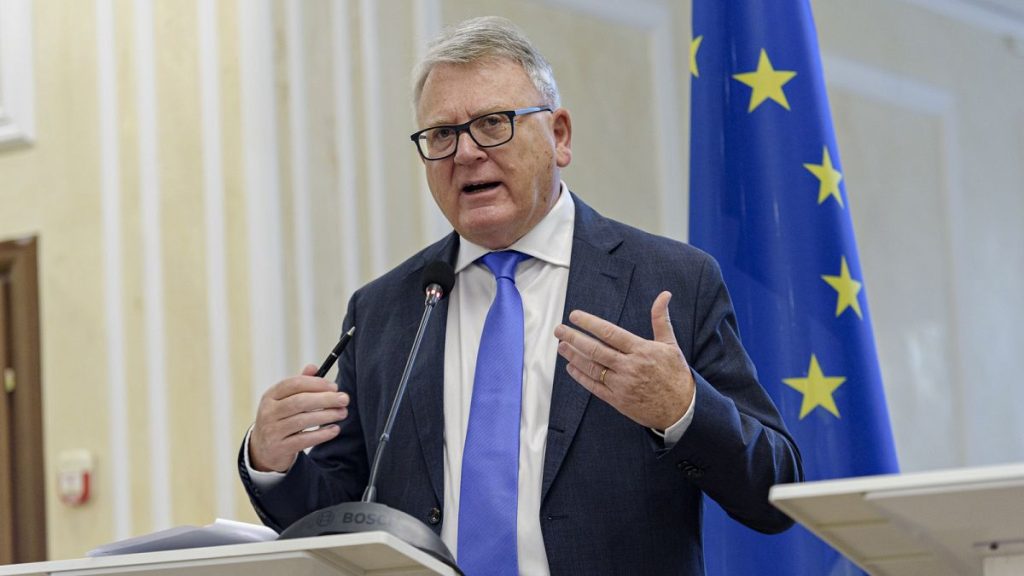Nicolas Schmit, the lead candidate for the European socialists in the June elections, has voiced concerns about the multi-million deals signed by Brussels with neighbouring countries to decrease irregular migration. Schmit believes that these deals may not be efficient, as the money is being given to governments that mistreat refugees. He suggests that the deals should be revised to ensure transparency in how the funds are used. This stance puts him at odds with his boss, President Ursula von der Leyen, who has been a proponent of these agreements to help boost the economies of countries like Tunisia, Mauritania, and Egypt.
Critics of these deals, often referred to as “memorandums of understanding,” argue that they lack transparency and rely on autocratic governments known for human rights violations. Despite widespread backlash from humanitarian NGOs and migration scholars, the strategy has the backing of leaders like Giorgia Meloni of Italy, Kyriakos Mitsotakis of Greece, Alexander De Croo of Belgium, and Pedro Sánchez of Spain. The latest implementation of this policy was announced in Lebanon, where the EU plans to provide a €1-billion assistance package to alleviate the country’s financial crisis and prevent refugees from heading towards Cyprus. However, concerns remain about how the funds will be utilized by the Lebanese government.
Schmit also criticized the so-called “Rwanda model,” which involves flying migrants to Africa to have their asylum claims processed on-site. This model, similar to a proposal in the EPP’s manifesto, has been met with opposition from Schmit, who believes it goes against the fundamental human rights upon which Europe is built. He also expressed his disapproval of the potential collaboration between von der Leyen and the hard-right European Conservatives and Reformists group (ECR). Schmit warned that seeking votes from the extreme right would result in the loss of support from the socialists.
As the Spitzenkandidat for the European socialists, Schmit finds himself in a challenging situation as he competes against von der Leyen, the frontrunner from the EPP. Von der Leyen has come under scrutiny for her attempts to court the hard-right ECR group, which is expected to see an increase in representation after the upcoming elections. Schmit emphasized that there is no room for any arrangement with the extreme right, as their views on Europe are fundamentally different. He criticized the EPP for its distinction between “decent” and “pariah” extreme right parties, highlighting the dangerous consequences of aligning with extremist groups.
Schmit’s strong stance against collaboration with the extreme right reflects the socialist party’s values and commitment to upholding human rights and democratic principles within the European Union. Despite the challenges posed by the shifting political landscape and the influence of anti-immigrant sentiments, Schmit remains steadfast in his rejection of any compromise with parties that promote xenophobic ideologies. This interview sheds light on the complexities of European politics and the balance between competing ideologies as the continent grapples with issues of migration, asylum, and governance.


